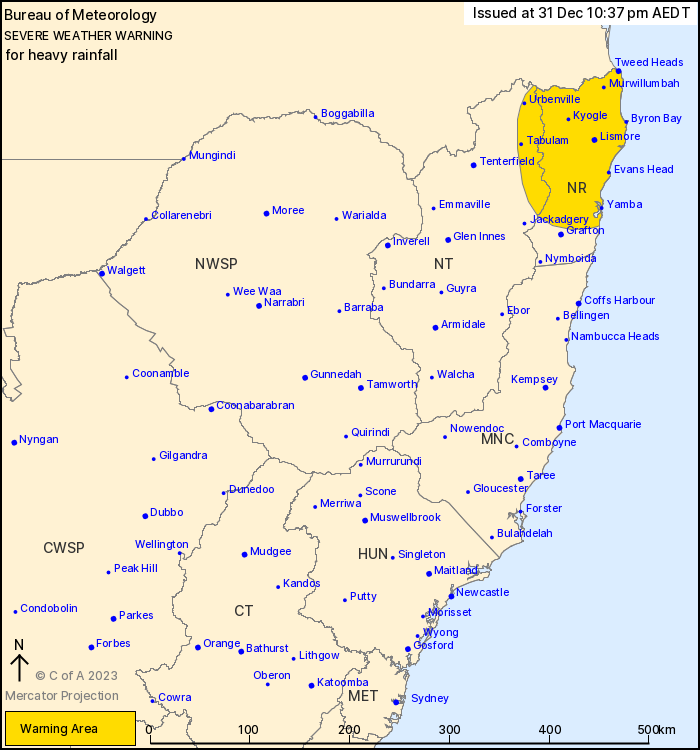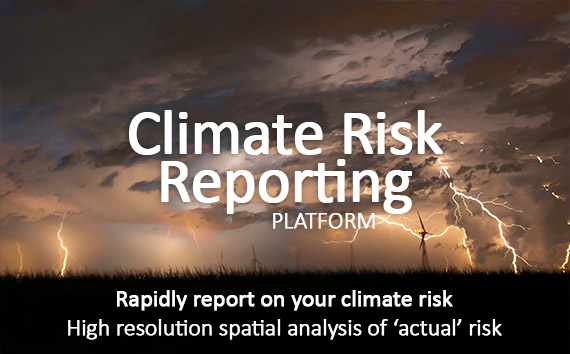Source: Bureau of Meteorology
For people in Northern Rivers and parts of Northern Tablelands
Forecast Districts.
Issued at 10:37 pm Sunday, 31 December 2023.
Heavy rainfall about the Northern Rivers overnight Sunday and
persisting through Monday.
Weather Situation: A high pressure system moving into the Tasman
Sea is directing persistent and very humid easterly winds over
northeastern parts of New South Wales. Persistent showers and
thunderstorms with heavy rainfall are expected to trigger on a
coastal trough overnight Sunday and persisting into Monday, with
further support from an upper trough sitting to the
southwest.
HEAVY RAINFALL which may load to FLASH FLOODING is forecast for
the Northern Rivers and parts of the Mid North Coast and Northern
Tablelands districts during Sunday night and Monday. Three to
six-hourly rainfall totals between 80 and 160 mm are possible, with
isolated 24-hourly totals exceeding 250 mm possible.
Heavy falls will be associated with shower and thunderstorm
activity, which is likely to be somewhat hit-and-miss in nature
across the warning area. These conditions are expected to continue
during Monday.
Localised intense rainfall is possible under areas of persistent
heavy thunderstorms. Separate severe thunderstorm warnings may be
issued to highlight areas of intense falls if they are
expected.
A Flood Watch is current for parts of the warning area. Flood
warnings may be issued as required. Please refer to
http://www.bom.gov.au/nsw/warnings/
Locations which may be affected include Lismore, Ballina, Casino,
Kyogle, Yamba and Maclean.
Severe weather is no longer occurring in the Mid North Coast
district and the warning for this district is CANCELLED.
188.6 mm recorded at Coffs Harbour Airport in the 3 hours to 2:50
pm.
175.0 mm recorded at Sawtell in 3 hours to 2:35 pm.
The State Emergency Service advises that people should:
* Don't drive, ride or walk through flood water.
* Keep clear of creeks and storm drains.
* If you are trapped by flash flooding, seek refuge in the highest
available place and ring 000 if you need rescue.
* Be aware that run-off from rainfall in fire affected areas may
behave differently and be more rapid. It may also contain debris
such as ash, soil, trees and rocks.
* After bushfires, heavy rain and the loss of foliage can make the
ground soft and heavy, leading to a greater chance of
landslides.
* Stay vigilant and monitor conditions. Note that the landscape
may have changed following bushfires.
* For emergency help in floods and storms, ring your local SES
Unit on 132 500.

31/Dec/2023 11:44 AM



